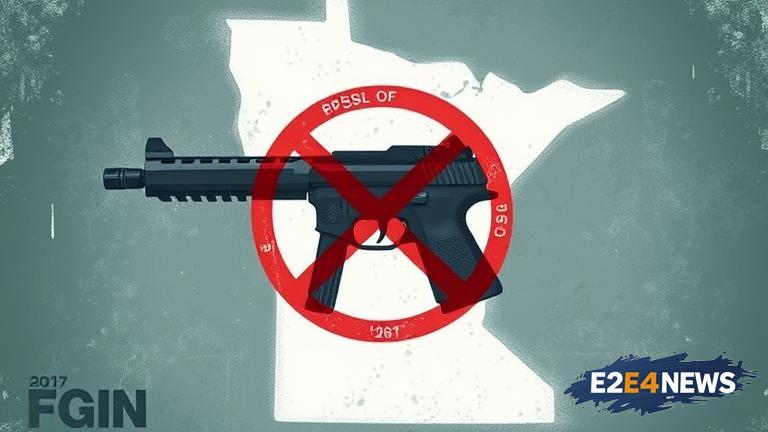The Minnesota Appeals Court has recently ruled on the issue of ‘ghost guns’, which are firearms that are manufactured without serial numbers and are often untraceable. The court’s decision has sparked a heated debate about gun control in the state. According to the ruling, the manufacture and possession of ‘ghost guns’ is illegal in Minnesota. The court’s decision was made in response to a lawsuit filed by a group of gun owners who argued that the state’s laws regarding ‘ghost guns’ were unconstitutional. The lawsuit claimed that the laws infringed upon the plaintiffs’ Second Amendment rights. However, the court disagreed, stating that the laws were necessary to prevent the proliferation of untraceable firearms. The ruling has been met with praise from gun control advocates, who argue that it will help to reduce the number of untraceable firearms on the streets. On the other hand, gun rights advocates have expressed disappointment and frustration with the decision, arguing that it infringes upon their constitutional rights. The issue of ‘ghost guns’ has been a contentious one in Minnesota, with law enforcement officials expressing concerns about the difficulty of tracing these firearms. The court’s decision is likely to have significant implications for gun control in the state, and could potentially lead to similar laws being enacted in other states. The ruling has also sparked a wider debate about the role of the Second Amendment in modern society. Some argue that the amendment is outdated and should be revised, while others believe that it is essential for protecting individual freedoms. The issue of ‘ghost guns’ is also closely tied to the issue of gun violence, with many arguing that the proliferation of these firearms is contributing to the problem. The court’s decision has been welcomed by many as a step in the right direction towards reducing gun violence. However, others have expressed concerns that the ruling will not be effective in reducing the number of ‘ghost guns’ on the streets. The manufacture and possession of ‘ghost guns’ is often linked to organized crime and terrorism, and the court’s decision is seen as an attempt to disrupt these activities. The ruling has also highlighted the need for greater regulation of the firearms industry, with many arguing that manufacturers should be required to serialize all firearms. The issue of ‘ghost guns’ is complex and multifaceted, and the court’s decision is just one part of a wider debate about gun control. The ruling has significant implications for law enforcement, who will now have greater powers to seize and prosecute individuals in possession of ‘ghost guns’. The decision has also sparked a debate about the role of technology in gun control, with some arguing that advances in technology could be used to create more effective systems for tracing firearms. The issue of ‘ghost guns’ is likely to continue to be a contentious one in Minnesota, with many arguing that the court’s decision is just the beginning of a longer process of reform. The ruling has been welcomed by many as a step towards creating a safer and more just society, but others have expressed concerns that it will not be effective in reducing gun violence. The court’s decision is a significant development in the ongoing debate about gun control, and is likely to have far-reaching implications for the state of Minnesota and beyond. The ruling has highlighted the need for greater cooperation and collaboration between law enforcement agencies, policymakers, and community leaders to address the issue of gun violence. The issue of ‘ghost guns’ is a complex one, and the court’s decision is just one part of a wider effort to reduce the number of untraceable firearms on the streets. The ruling has significant implications for the future of gun control in Minnesota, and could potentially lead to similar laws being enacted in other states. The decision has been met with a mixture of praise and criticism, reflecting the deeply divided nature of the debate about gun control. The issue of ‘ghost guns’ is likely to continue to be a contentious one, with many arguing that the court’s decision is just the beginning of a longer process of reform.





